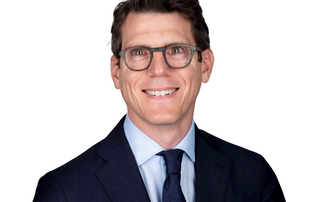Key points
EWAN MCALPINE - Senior Client Portfolio
Manager at Royal London Asset Management
In uncertain times, investors naturally seek safety. But in fixed income markets, what does that really mean? Ewan McAlpine outlines the approach RLAM's Fixed Income Team will be adopting across its credit funds in response to potentially volatile markets this year.
Among the potential risks investors face in 2016 are interest rate rises in the US, the growing threat of terrorism, mounting tensions between Saudi Arabia and Iran, a possible Brexit, cracks in the EU framework, ongoing ructions in China and volatility in emerging markets.
Some market commentators are warning that only ‘high-quality' bonds can protect investors against the manifold risks facing markets in 2016. High quality bonds are typically defined as those issued by governments (sovereign or government bonds) and those issued by companies and that have a high credit rating (investment grade corporate bonds.
Credit ratings issued by agencies such as Moody's and Standard and Poors are used to identify credit risk, or the risk of losing your initial capital as well as the interest payments on the bond reducing or ceasing. These ratings categorise bonds as investment grade bonds, where the risk of default is lower, and sub investment grade or high yield bonds, where this is higher.
In the face of much gloom, investors are increasingly seeking exposure to ‘safe-haven' bonds in an effort to reduce risk in their funds. We believe that the perception of risk is influenced heavily by credit ratings and benchmarks, (the market segment indices used as a standard against which the performance of a fund can be measured) used by many investors as the starting point for constructing funds. We believe, however, that investors with limited experience of markets should ask themselves if they are best served by following the guidance these provide. Do ratings really help investors identify high-quality assets? What does ‘high-quality' mean anyway?
In our opinion, fixed income investors need to consider, as their basic starting point, what they are trying to achieve. If they are seeking to identify and invest in assets that produce an attractive and sustainable income with a high degree of security (which is our definition of high quality), a fixed income benchmark may not be the place to start. Indeed, benchmarks serve to expose investors to those companies that have issued the most bonds and can therefore be seen as the most indebted businesses, while those which issue fewer or smaller bonds are generally excluded from benchmarks.
In our opinion, credit ratings could similarly exclude a number of potential opportunities. The companies that issue bonds have to pay agencies for their bonds to be rated, so some companies, including a number of FTSE 100 firms also issue unrated bonds in order to reduce cost. At RLAM we favour a number of bonds without a credit rating, which we believe present an opportunity that the average investor, guided by credit ratings, would never know existed. Where we use unrated bonds we generally tend to favour secured bonds or those where bondholders have a claim on a specified asset or pool of assets. These bonds could potentially therefore provide superior recovery characteristics in the event of default.
What matters to us is not the view of a credit rating provider or the weighting of a benchmark. We are far more focused on achieving a decent income from the bonds' interest payments over the medium-to-long term, with some security in that outlook. That means doing a lot of work assessing individual bonds - looking closely at their structure and thecovenants (legally binding restrictions placed on the bond issuer) in place - with the aim of ensuring we can achieve a set of reliable long-term cashflows. Key questions that we ask ourselves include, are we comfortable that we will get our capital back from every bond and that the income will always be paid?
Using such measures, we are currently finding attractive opportunities in a wide range of different areas. We prioritise some degree of security and perhaps even a guarantee. For us that represents high-quality and we'll continue to stick with this approach amid market
uncertainty into 2016.
Past performance is not a guide to future performance. The value of investments and the income from them is not guaranteed and may go down as well as up and investors may not get back the amount originally invested. Unlike the income from a single fixed income security, the level of income (yield) from a fund is not fixed and may go up and down. Sub-investment grade bonds have characteristics which may result in a higher probability of default than investment grade bonds and therefore a higher risk. The views expressed are the author's own and do not constitute investment advice. Issued by Royal London Asset Management December 2015. Information correct at that date unless otherwise stated. Royal London Asset Management Limited, registered in England and Wales number 2244297; Royal London Unit Trust Managers Limited, registered in England and Wales number 2372439. RLUM Limited, registered in England and Wales number 2369965. All of these companies are authorised and regulated by the Financial Conduct Authority. All of these companies are subsidiaries of The Royal London Mutual Insurance Society Limited, registered in England and Wales number 99064. Registered Office: 55 Gracechurch Street, London, EC3V 0RL. The marketing brand also includes Royal London Asset Management Bond Funds Plc, an umbrella company with segregated liability between sub-funds, authorised and regulated by the Central Bank of Ireland, registered in Ireland number 364259. Registered office: 70 Sir John Rogerson's Quay, Dublin 2, Ireland. Our ref: 093-RET-01/2016-JW.











